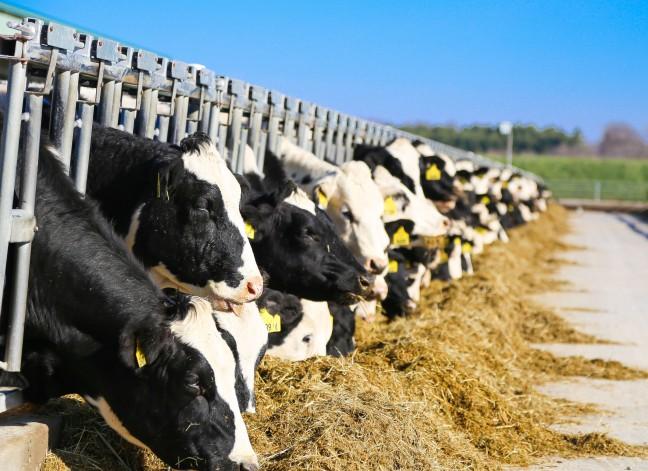This week’s Wednesday Night at The Lab was led by University of Wisconsin Associate Professor of Biological Systems Engineering Rebecca Larson, who spoke on greenhouse gas emissions released by agricultural and dairy systems and methods to mitigate them.
Larson opened by saying that her presentation was meant to be educational rather than a call to action. She then went on to give a basic overview of climate change and greenhouse gases, or GHGs.
Manure is reused in agriculture as a resource for nutrients for crops, and the crops are used to feed the livestock, essentially creating a cycle. This cycle inadvertently results in a large amount of greenhouse gas emissions, which include carbon dioxide, methane and nitrous oxide.
Greenhouse gases cause climate change, but some of them are more potent or destructive than others. To explore this further, scientists have come up with CO2 equivalence to compare the gases in terms of global warming potential and life-time on in the atmosphere. Both nitrous oxide and methane have higher global warming potential than an equivalent amount of carbon dioxide.
Can carbon be used for clean energy? One UW professor says it’s possible
According to an article in Nature, methane spends an average of 12 years in the atmosphere compared to over a century for CO2 — but is 20 times as potent. Similarly, a pound of nitrous oxide warms the planet 300 times as much as a pound of CO2 during the typical century it spends in the atmosphere.
Larson next went on to describe the different sources of GHGs and their relative GHG production, of which agriculture contributes 10%. She said though that 10% may seem insignificant, making changes in the agricultural industry would still make a profound difference on Earth’s changing climate. This is due to the numerous potential changes that could be made in the industry.
For instance, she said, carbon dioxide emissions from the agricultural industry are not that significant because of the cycle she had previously explained. She also said methane emissions from enteric fermentation, known in lay terms as cow burps and farts, could be decreased by breeding healthier cattle. Her focus, however, was on manure which provides various solutions and produces 10% of the emissions attributed to agriculture.
Electric vehicle policies, practices pave way for reducing carbon emissions in Midwest
Larson identified three processing practices that reduce nitrous oxide and methane emissions from the four main ‘stages of manure’ — production, collection, storage and land application. The first emission reduction strategy is composting, or decomposing the matter to decrease methane emissions. The method is cheap, simple and implemented mostly in smaller farms.
The second is agricultural digesters, which allow for the anaerobic bacterial digestion of the manure and subsequent collection of methane. The collected methane is then used as natural gas, which results in an overall decrease in greenhouse gases.
The last process she discussed was solid-liquid separation, which uses a plethora of methods to produce methane. Again, the methane can be collected and used as natural gas, decreasing the overall GHG emissions.
These are just a few of the methods used to decrease GHG emissions in the agricultural industry, but they have the potential to make real change, a change Larson said is our duty to decide on, as a people.


















